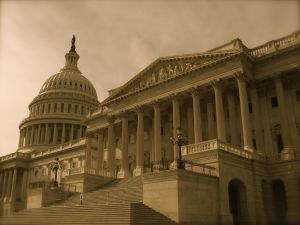

THE Protecting American Talent and Entrepreneurship Act (PATENT) Act, which we wrote about before, is about protecting mega-corporations, not "American Talent and Entrepreneurship". It protects them from smaller companies, especially from patent trolls. There was a lot of coverage about it last week [1, 2, 3, 4, 5, 6, 7, 8, 9, 10, 11, 12, 13, 14, 15, 16, 17, 18, 19, 20, 21, 22, 23, 24, 25, 26, 27, 28], some coming from lawyers' sites [1, 2, 3, 4]. Proponents of software patents, such as Gene Quinn and Steve Brachmann, would say that "Vocal minority cannot keep PATENT Act from passing Senate Judiciary" among other things, but the matter of fact is, this so-called 'reform' achieves almost nothing of real use. It's a bit like the so-called 'Freedom' ACT, which got diluted to the point of uselessness. Even some of its original backers have withdrawn support for what it ended up like. An article titled "Could Patent Trolls Be Harder to Defeat Than the NSA?" said: "Silicon Valley lobbyists were feeling pretty good on Tuesday. Several gathered at Bobby Van’s, a downtown D.C. bar, to celebrate their successful campaign to curb the National Security Agency’s mass surveillance practices, after a two-year effort.
“The bill, as initially presented, garnered a good deal of support from traditional reform supporters [...] amendments or revisions to the bill, nearly all of which could diminish (or even extinguish) the enthusiasm of current supporters and endanger the bill's chances to move forward.”
--The HillIn both cases, laws are being passed to benefit large corporations. They totally hijack reform attempts, too. If not directly, they do it through lobbyists and proxies like trade groups (see "Trade group CEO warns patent trolls may chase tech companies out of U.S."). Based on this statement from Grassley, he seems not to mind this distortion of his effort and political media is largely supportive of this distortion, calling it a "light at the end of the tunnel" (in headline plus body!).
"After nearly three years of patent reform discussions," wrote The Hill, "there appears to be some light at the end of the tunnel. On Thursday, the Senate Judiciary Committee plans to mark up their Protecting American Talent and Entrepreneurship Act (PATENT) Act, which at present is a package of patent litigation reform measures aimed at making the business of frivolous litigation less attractive to those who like to game the system for financial gain. The bill, as initially presented, garnered a good deal of support from traditional reform supporters, including small businesses, hotels, banks, retailers and the tech industry. Even universities, who dislike the House's Innovation Act, have expressed tepid support for the PATENT Act.
"But what if that light is not the other side of the tunnel, but an oncoming train?
"Last-minute negotiations have unlocked a Pandora's box of possible amendments or revisions to the bill, nearly all of which could diminish (or even extinguish) the enthusiasm of current supporters and endanger the bill's chances to move forward. And almost all of them are focused on changing procedures established just a few years ago in the last round of patent reform."
Whether this passes or not, there's not much of a solution in it. In a sense, it may prove to be only a waste of effort. These people don't speak about patent scope but about the scale of the plaintiff and who pays litigation costs.
Don't waste much time watching this PATRIOT Act debate; it's not part of the solution, except perhaps to issues of mega-corporations. Eventually, they always get what they want, just like in so-called 'free' 'trade' agreements. Revealing their collusion is means for garnering public opposition and backlash. ⬆